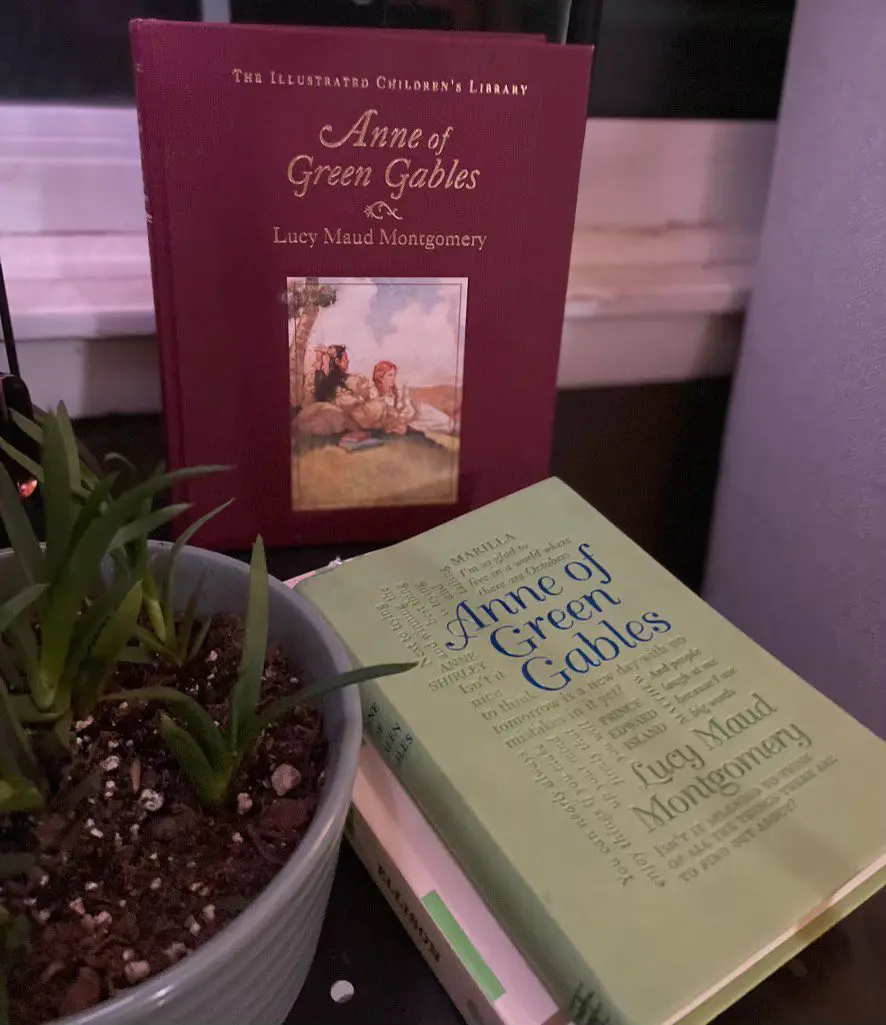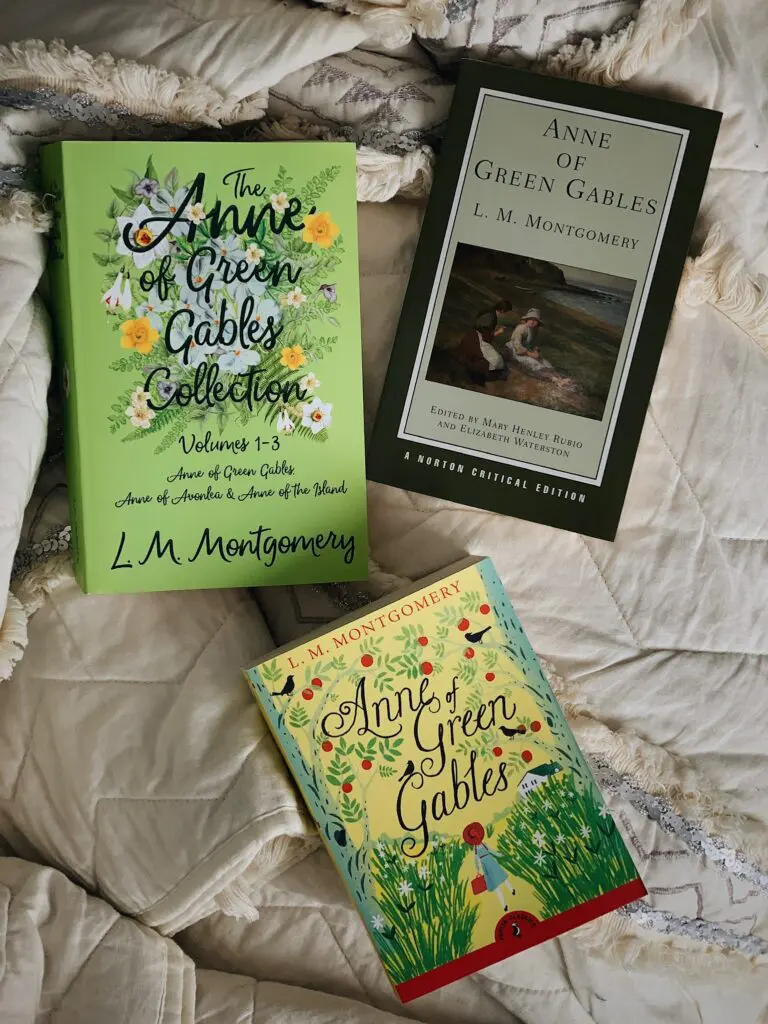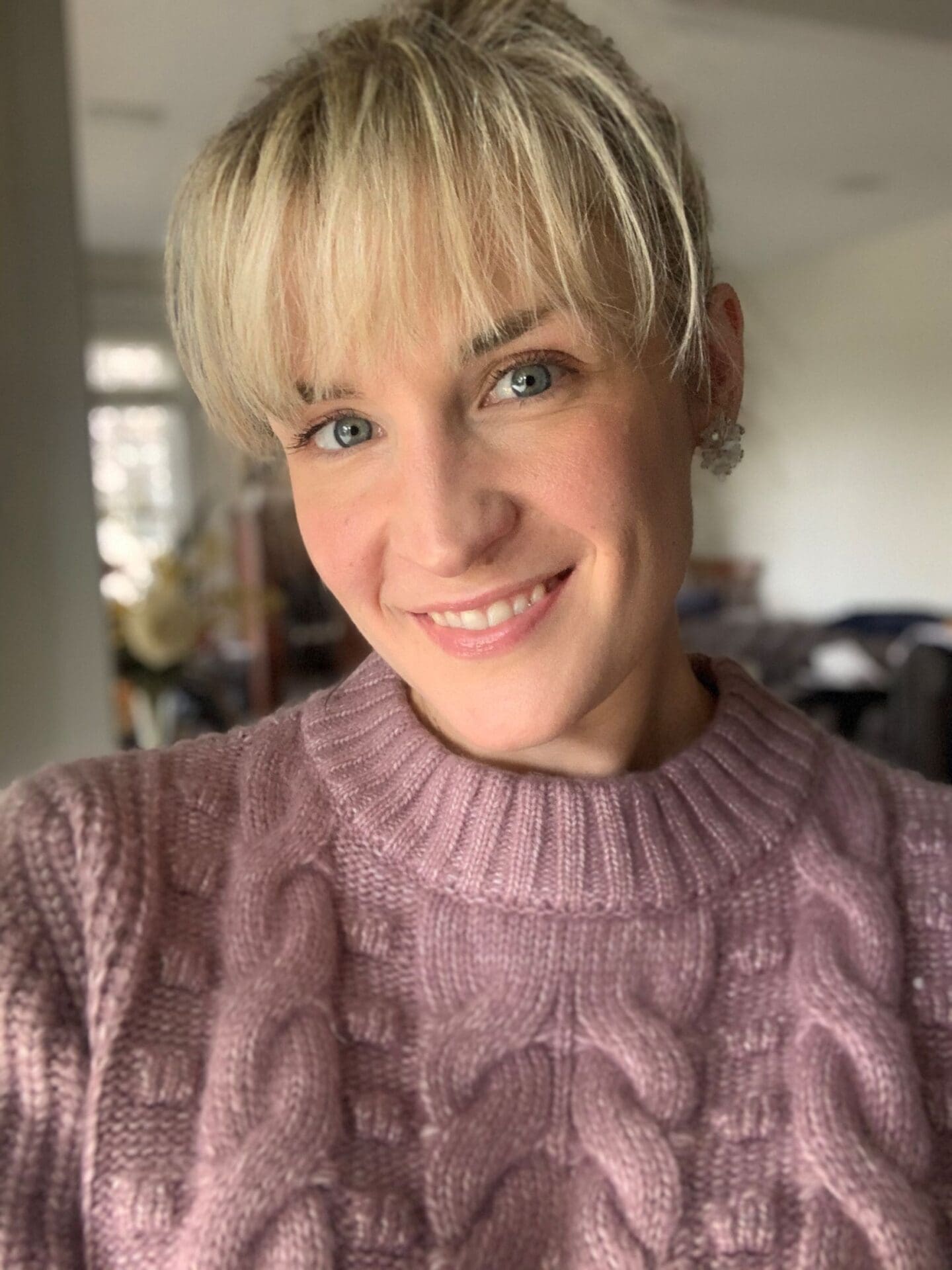Anne of Green Gables and the Glorious Sanctity of Life
by Megan Keyser
“Are you disappointed to have to read that for book club?” my husband asked, gesturing towards yet another copy of Anne of Green Gables I had managed to acquire. “You’ve read it so many times.” In truth, I can’t count the number of times I have enjoyed the escapades, triumphs, and “tragical” episodes in Anne Shirley’s fictional life. But despite the innumerable times I have indulged in this novel, I cannot think of one reading that failed to bring me both sincere joy and spiritual enlightenment. Great novels, like “kindred spirits” or “bosom” friends, possess the capacity to provide comfort and satisfaction to our lives, brightening the recesses of our hearts and minds, but most importantly, inspiring us with vistas of virtue and truth, particularly in moments when most needed. And like the highest of human friendships, which have a way of magnifying the truth, however that friendship may evolve as we grow and mature, the beautifying lessons a novel provides at unique junctures in our lives may also vary, but the emphasis on the “Good” remains constant.

When I was a child, sprawled out across my bed, delighting in Anne for the first time, her quaint sense of melodrama (to which I completely related) and her yearning for beauty and love spoke to my very soul. As a teenager, I sought to emulate Anne’s sense of conviction, righteousness, and ambition, desiring to aspire to her lofty ideals of character and empathizing with her very human struggles. Now, as an adult, though I certainly revel in those aspects of the story, I find myself increasingly pondering Matthew and Marilla’s role in this poignant tale.
Last month, our nation observed the ghastly anniversary of Roe v. Wade, through which the “right” to abortion was enshrined across America. Since this legal development, over 62 million lives have been extinguished (and countless souls tragically transfigured and maimed), all under the guise of empowering women. While this catastrophic loss of life is staggering, the grim ramifications extend well beyond the sheer death toll. The callousness with which we regard unborn human life has grossly redefined our views regarding children and motherhood in very tangible ways. We continually demean the vocation of the “mere” stay-at-home mother as “wasting” a woman’s talents and energies, while we simultaneously promote the commodification of pregnancy and our bodies through developments like surrogacy. We lament the realities of sexual and domestic abuse, but we fail to see how our cavalier attitude towards sexual ethics, marital fidelity, and lasting commitment contribute to these ills. In a world where unborn children are regarded as discardable, tantamount to mere medical waste, how can motherhood, family, and the primacy of human relationship and connection be upheld?
With this sobering reality in my mind, I found It hard to dismiss the undeniably pro-life message contained in Anne of Green Gables. While author Lucy Maud Montgomery may never have fathomed a world in which abortion-on-demand was not only touted as a “right,” but even as a “victory” for women, she obviously recognized the difficulty faced in unhesitatingly welcoming children into our lives, particularly when it interferes with our best-laid plans. Marilla’s unreserved consternation upon Anne’s unexpected arrival at Green Gables vividly mirrors the sentiments uttered by countless parents caught unawares: How could this possibly be? Everything had been perfectly calculated and prepared for a specific outcome, yet somehow, instead of the desired boy (the proverbial “perfect” child for to suit Marilla and Matthew’s needs), there was only this waifish “witch of a girl.” In light of her own disappointment and frustration, Marilla unabashedly, and rather hardheartedly asserts, “A girl would be of no use to us,” and further expounds on this sentiment, saying: “I don’t want an orphan girl and if I did she isn’t my style” (page 22 and 25) Though Marilla is hardly a soulless monster, the temptation to view other human beings in a utilitarian light, specifically when facing our own difficulties or challenging circumstances, is an insidious tendency to which even the best of us can fall prey. What use is this person to us? How can an unplanned baby enrich our lives, without hampering our future designs or dreams? How can a sick or elderly person, or an individual with special needs be of value when they demand so much from us? What is the point of enduring the ardors and struggles of marriage, parenthood, family life, or community if we do not receive a tangible benefit or profit?
While we can understand Marilla’s dilemma (I mean, how might we initially respond if an unexpected orphan child ended up on our doorstep?), Matthew’s perspective should give us pause. Instead of speculating, as Marilla does, whether Anne is a “useful little thing,” Matthew remarks that “She’s such an interesting little thing” (40). Though Anne’s appearance in their lives was thoroughly unexpected, and Matthew initially recoils at her small female visage (due to his blinding fear of the fairer sex), Matthew astutely recognizes the vivifying beauty of Anne: a beauty found in the singular brilliance of her soul, and a worth realized, not in her usefulness or the convenience of her presence, but simply in the merit of her irreplaceable existence. And in his recognition of Anne as a person, not a means, Matthew is able to push his own preferences or whims aside in consideration for the needs of a child – a child in desperate need of love:
“It was not of Marilla or himself he was thinking of or the trouble this mistake was probably going to make for them, but of the child’s disappointment. When he thought of the rapt light being quenched in her eyes he had an uncomfortable feeling that he was going to assist at murdering something – much the same feeling that came over him when he had to kill a lamb or calf or any other innocent little creature”
Anne of Green Gables by L.M. Montgomery (18)
The paradox of self-denial, however, is that, though it may initially appear to our disadvantage, it very often enriches our own lives in powerful and mysterious ways. Though the thought of raising a freckle-faced, red-haired waif with a fiery temper, wild imagination, and unconventional ways seems an almost insurmountable cross to Marilla, when she follows her “qualm of conscience” by choosing to safeguard Anne from a continued existence of misery, loneliness, and suffering, regardless of the cost to herself and Matthew, visions of beauty and goodness, heretofore unknown to Marilla, suddenly burst into view. As Anne slowly erodes the “sensible” indifference and carefully detached persona Marilla has embodied for so long, Marilla is transformed – for the better. Marilla herself senses this change, and finds herself unsettled by the unforeseen pleasantness of the unplanned: “Something warm and pleasant welled up in Marilla’s heart at the touch of that thin little hand in her own – a throb of the maternity she had missed, perhaps. Its very unaccustomedness and sweetness disturbed her” (64). But as the novel continues, the initial stirrings of sweetness pale in comparison to the depth of devotion she ultimately feels for Anne – a tenderness that grows through intimately sharing in Anne’s life, replete with its joys and frustrations, hopes and discouragements, triumphs and missteps. When Anne falls from the Barrys’ kitchen roof and is carried home limp in the arms of Mr. Barry, the intensity of Anne’s worth is realized: “At that moment Marilla had a revelation. In the sudden stab of fear that pierced her very heart she realized what Anne had come to mean to her. She would have admitted that she liked Anne – nay, that she was very fond of Anne. But now she knew as she hurried wildly down the slope that Anne was dearer to her than anything else on earth“(156-157).

So often in our world, we naturally think of ourselves – our grand plans, ambitions, and goals, our comforts, pleasures, and whims. We pursue these things believing we will achieve lasting contentment in their acquisition or fulfillment. We shun pain and sacrifice with an inordinate dread of the “unknown,” and all too frequently, we leave other human beings – particularly the most vulnerable, friendless, and destitute among us – to bear the brunt of our unbridled fear. Though Anne’s unheralded arrival is rather inconvenient, and she’s not the “proper” sex or “style,” and while Anne presents an unexpected array of challenges, particularly due to her volatile and neglected upbringing, there is something precious, however obscured, in Anne: namely, she is a human being of infinite value, deserving of love, affection, and care. It is enthralling to witness how this initially disdained creature, whom this brother and sister duo courageously, however hesitatingly, endeavor to shelter and rear, becomes the improbable catalyst and source of so much joy, wonder, and inspiration, not merely for Matthew and Marilla, but to their friends, neighbors, and the broader Avonlea community. As Matthew poignantly reflects,
“She’s been a blessing to us, and there never was a luckier mistake than what Mrs. Spencer made – if it was luck. I don’t believe it was any such thing. It was Providence, because the Almighty saw we needed her”
Anne of Green Gables by L.M. Montgomery (232)
Sometimes, in fact, perhaps more often than we realize, the development that we never envisioned, anticipated, or desired, possibly even the circumstance we sought to avoid, becomes the very thing that refines our souls, enlarges our hearts, and defines our very existence. Perhaps what we thought was an unbearable cross is, in actuality, our gloriously unexpected pathway to salvation and true happiness: our very own “bend in the road.” As Anne remarks, “It has a fascination of its own, that bend, Marilla…what new landscapes – what new beauties – what curves and hills and valleys further on” (253-254).
About Well-Read Mom
For our Tenth Anniversary, the reading list put together by Well-Read Mom reflects on the theme of family. In Well-Read Mom we desire to create a place for women, not to escape from family life and work, but to experience a kind of leisure through friendship and literature so that women can return to their lives with a renewed vision and vigor. By reading books together, we help sustain a tradition of reading, which is a gift not only to our families but to the world. We hope you’ll join Well-Read Mom for our Year of the Family. Find out more.

